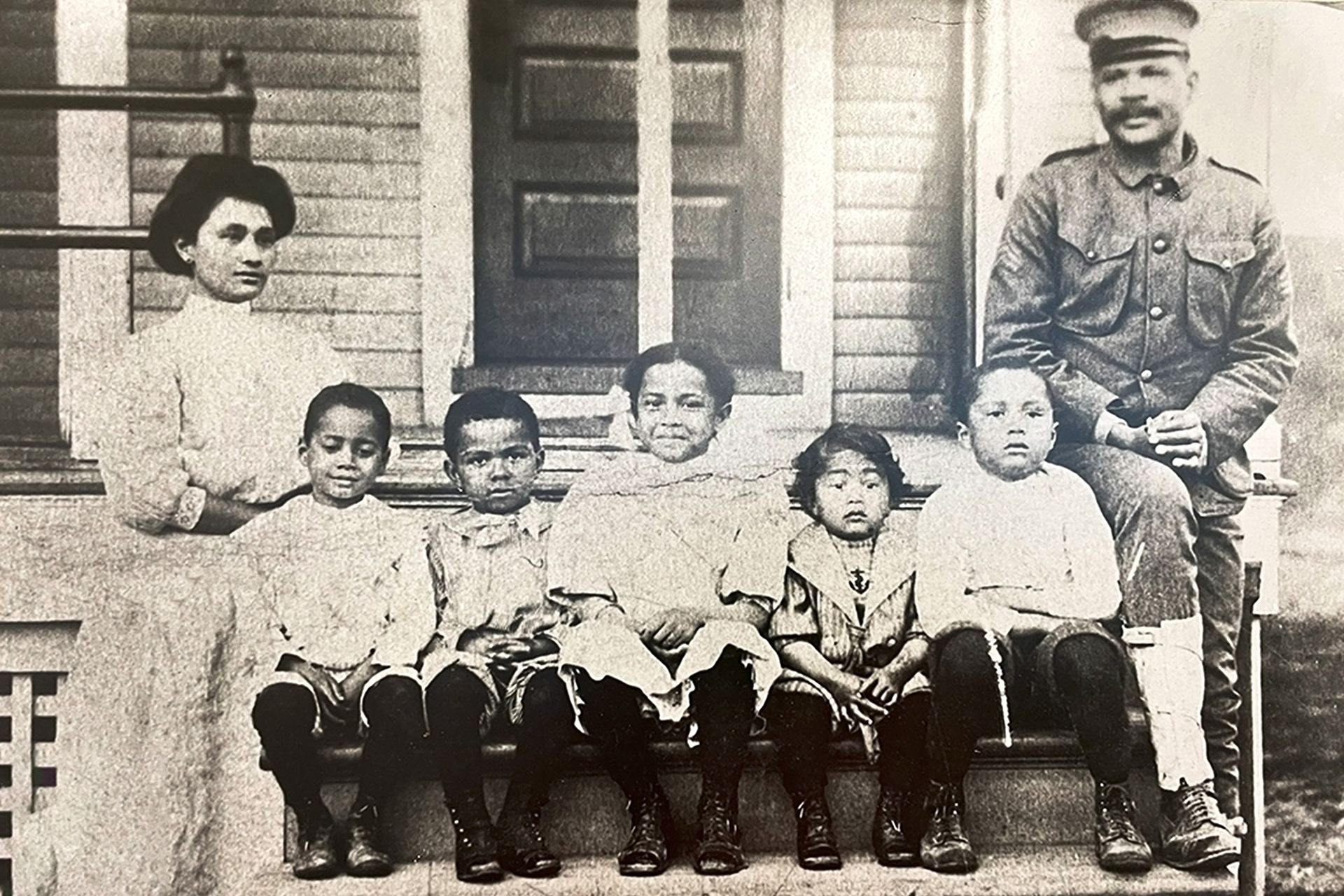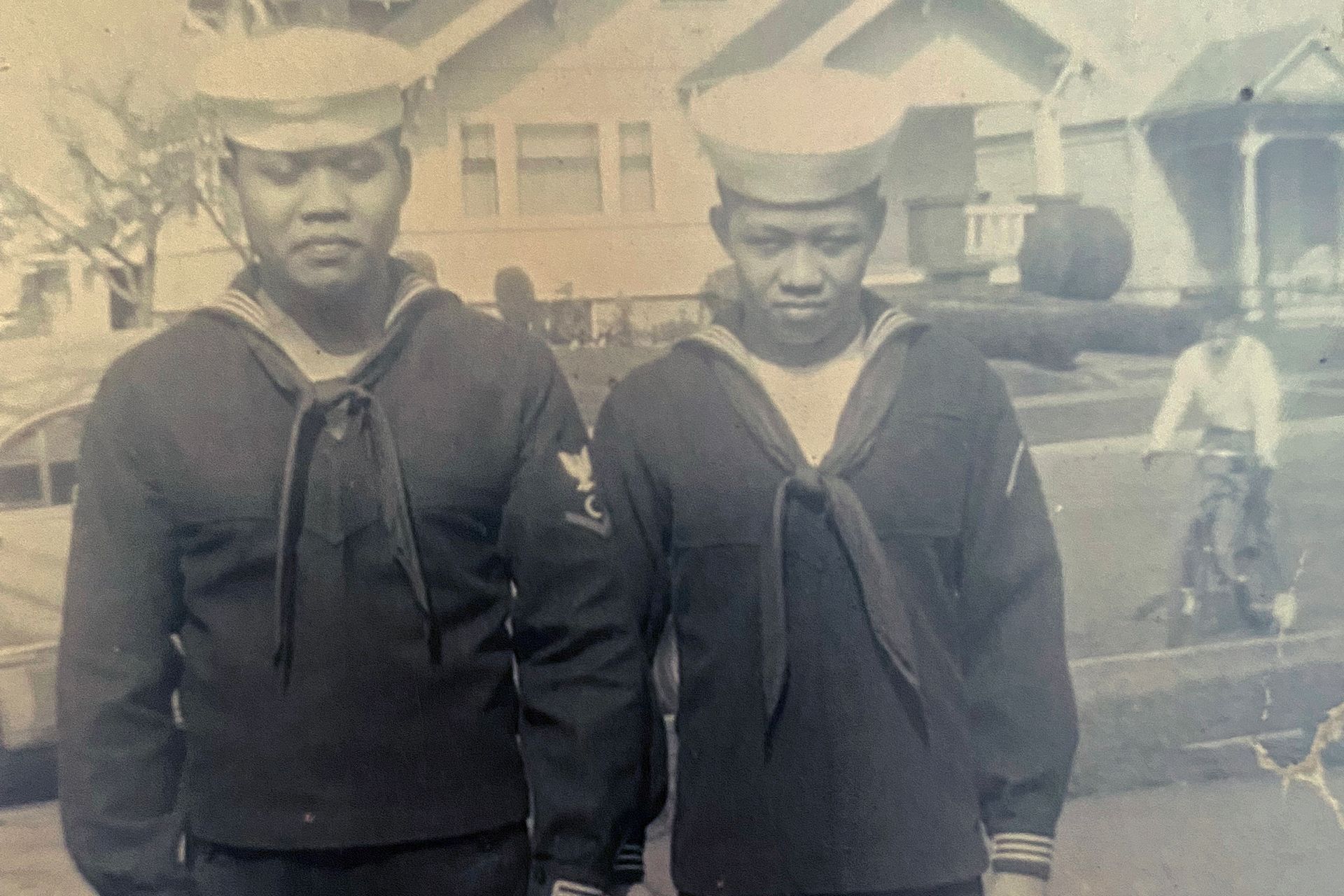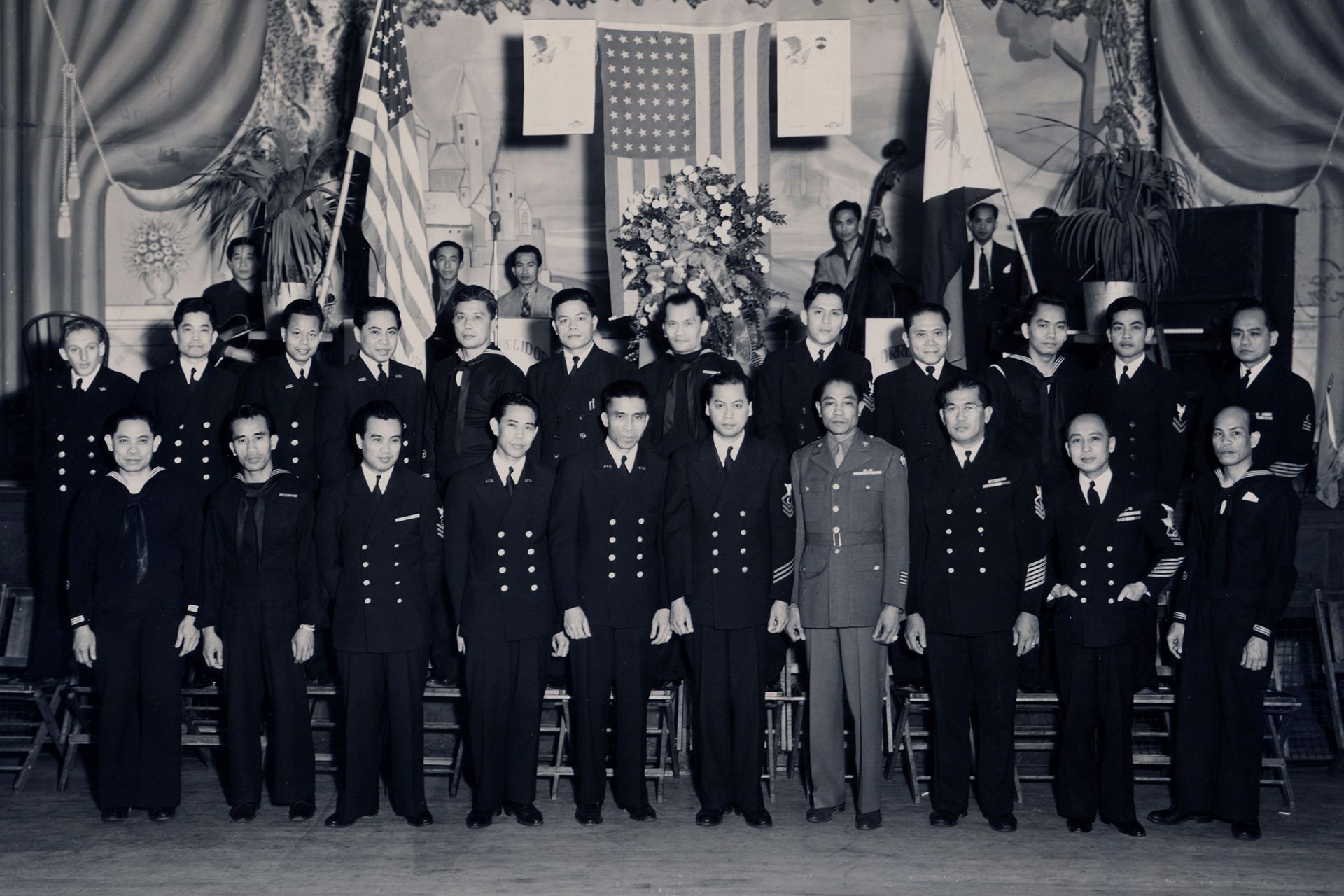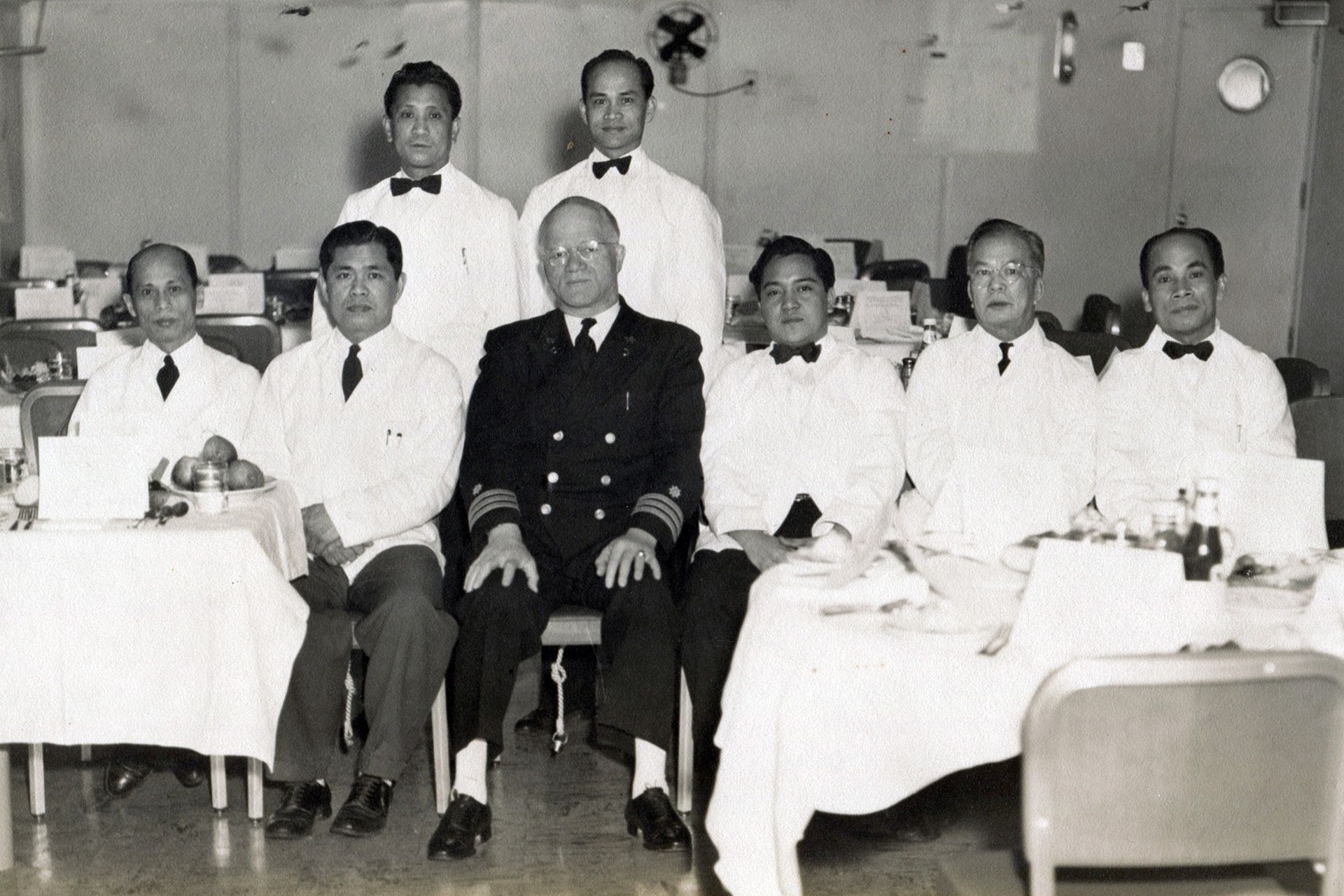CHAPTER
04
SERVING OUR NEW COUNTRY
Filipinos have served in the American military for as long as they have been immigrating to the United States. While Filipino men and women have supported all branches of the armed services, the U.S. Navy and its shipyards throughout Puget Sound have been a particularly important home for many Filipino servicemembers.
On April 8, 1901, President William McKinley signed General Order No. 40, allowing the U.S. Navy to recruit up to 500 Filipinos. Within a few years, new recruits were assigned to U.S. naval bases throughout America. After World War I, the U.S. began recruiting sailors from the Philippines in greater numbers. This practice was stopped with the 1934 Tydings-McDuffie Act but resumed after World War II. Throughout the rest of the 20th century, thousands more servicemen and women were recruited from the Philippines.
By 1913, Filipinos had established their first community in Washington State in Bremerton, where many worked in the U.S. Naval Shipyard. Throughout the 1900s, young sailors stationed at Sand Point in Seattle, Bremerton, and other U.S. Navy installations soon became part of the Puget Sound Filipino-American community. Today, many second-generation Filipino-Americans continue to serve in the armed forces.
WAR BRIDES
Among the first Filipinos to arrive in the U.S. in the early 1900s were America's first Asian war brides: Filipinas who married American soldiers during the Spanish-American War. Buffalo Soldier Sgt. Frank Jenkins and his family arrived at Seattle's Colman Dock on the SS President Jefferson in September 1909. The Jenkinses first lived at Fort Lawton and then moved to Interbay after Sgt. Jenkins retired.

Born in Manila, Jorge Sevilla came to Washington when his father, who served in the U.S. Army, was assigned to Fort Lewis. Jorge—pictured here (right) shortly after enlisting—went on to a long career with the Navy and Department of Defense.

"On board on the USS Maury, I was the only Filipino in the Medical Department; other Filipinos were assigned as stewards as kitchen help, Officers' Mess and cooks."
–Jorge Sevilla
Honoring World War II servicemen at the Old Finnish Hall, circa 1943. The majority of those pictured served in the Navy, with exception of one Army man, standing in the front row in the lighter-colored uniform.

finding post-war service opportunities
After World War Il, hundreds of Filipinos served in the U.S. Navy's new Military Sea Transportation Service (MSTS), which managed the Department of Defense's ocean transportation needs. Among other critical roles, many Filipinos served in the MSTS vessels' kitchens and cafeterias.








